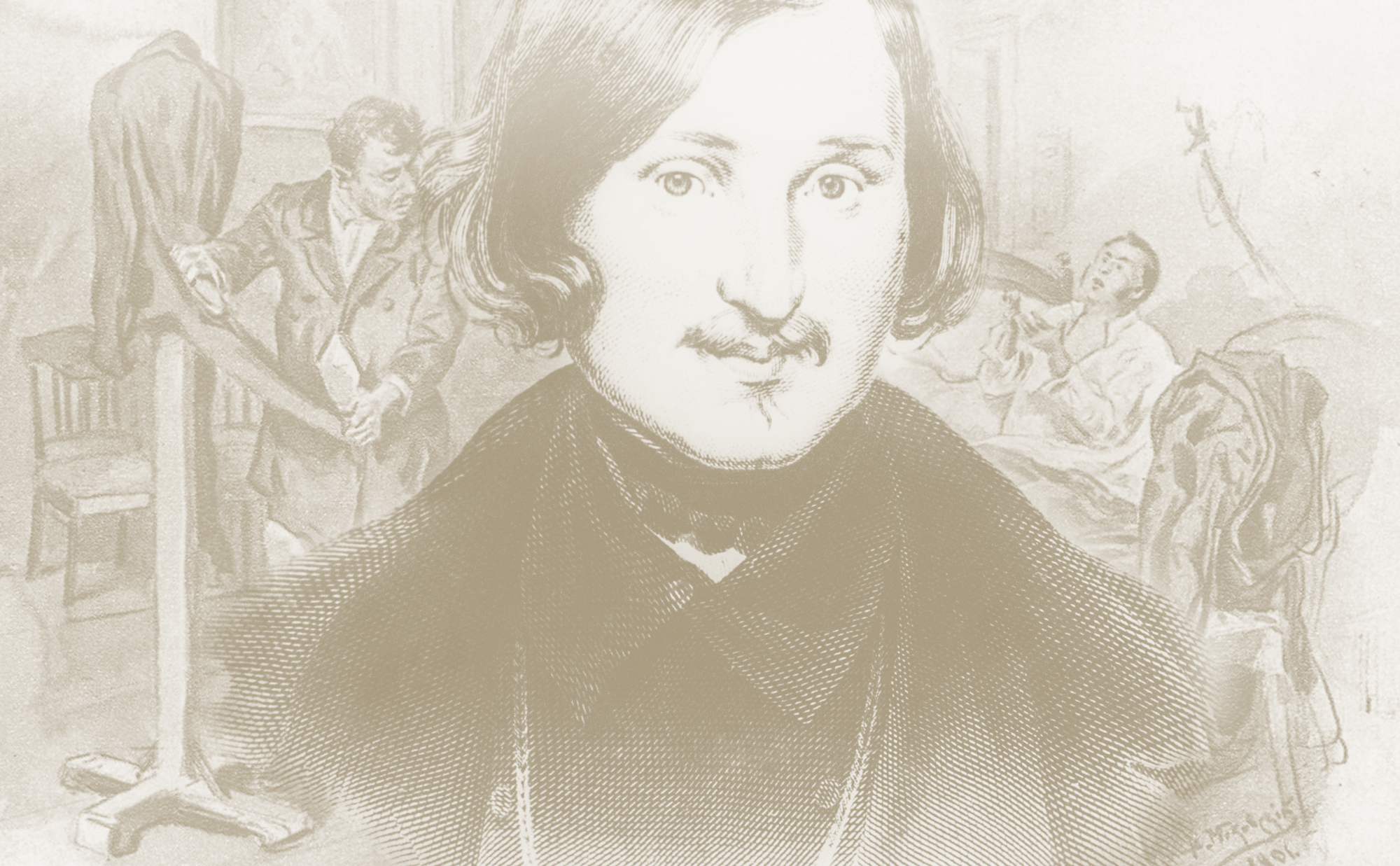Nikolai Gogol is a great Russian writer, the author of such immortal books as Evenings on a Farm Near Dikanka, Taras Bulba, Viy, The Government Inspector, Dead Souls and others. The comprehensive talent of the writer is revealed differently in these books: he fascinates by the richness of his language in his Ukrainian books, the phantasies of his St. Petersburg short stories and the hilarious satire of The Government Inspector and Dead Souls. His life and death are a mystery for generations of scholars.
Nikolai Vasilievich Gogol
(1 April 1809 – 4 March 1852)
Nikolai Gogol was born in a modest gentry family. He went to high school where he first got interested in literature, painting and developed a talent for mimicry.
Since he was a young boy he dreamt of civil fame but as time went by his passion for literature superseded all his other hobbies.
In 1831 he met Alexander Pushkin who greatly influenced the development of Gogol’s personality as a writer.
The top of his dramatist art was the satire The Government Inspector that was simultaneously published and staged at Alexandrinsky theatre in St. Petersburg in 1836.
Gogol spent only a few years in St. Petersburg. His last address in St. Petersburg was Malaya Morskaya str., 17 (since 1902 till 1993 the street was called Gogol street after Nikolai Gogol). He rented a three room apartment in this house. The encounter of Gogol and St. Petersburg was the encounter of the most mystical writer and the most mystical city in the world. They had a somewhat clouded relationship. Of the 43 years of his life Gogol only spent 8 years in St. Petersburg (1828 – 1936). However, he managed to “truly understand and render the eccentricity of the city”. The image of the city can be seen throughout most of his works, many of his characters lived here.
His subsequent creative life was less easy and smooth. In 1848 he returned to his native country and tried to continue his work but he kept being dissatisfied with Dead Souls. On the night of 12 February 1852 he burned some of his manuscripts, which contained the second part of Dead Souls, nine days later he died in his last flat in the house of Talyzin in Moscow. His funeral took place at Svyato-Danilov Monastery and it was attended by crowds of people.
Numerous works about Gogol, new publications of his works, visualization of his images on stage, on screen, in art and music confirm that interest to his works is still alive throughout the world.
UNESCO celebrated 200th anniversary of his birthday and declared 2009 the Year of Gogol.
“Those who have dissected my literary abilities, were not able to find out the essential characteristics of my nature. Only Pushkin was able to do it. He always asserted that no author except myself has such a capacity for bringing out all the trivialities of life, of describing so well the vulgarity of the mediocre man, or of opening one’s eyes on those small things which generally remain unobserved. This is my main quality that distinguishes me from other writers”.
Nikolai Gogol Selected Passages from Correspondence with My Friends.
1847

